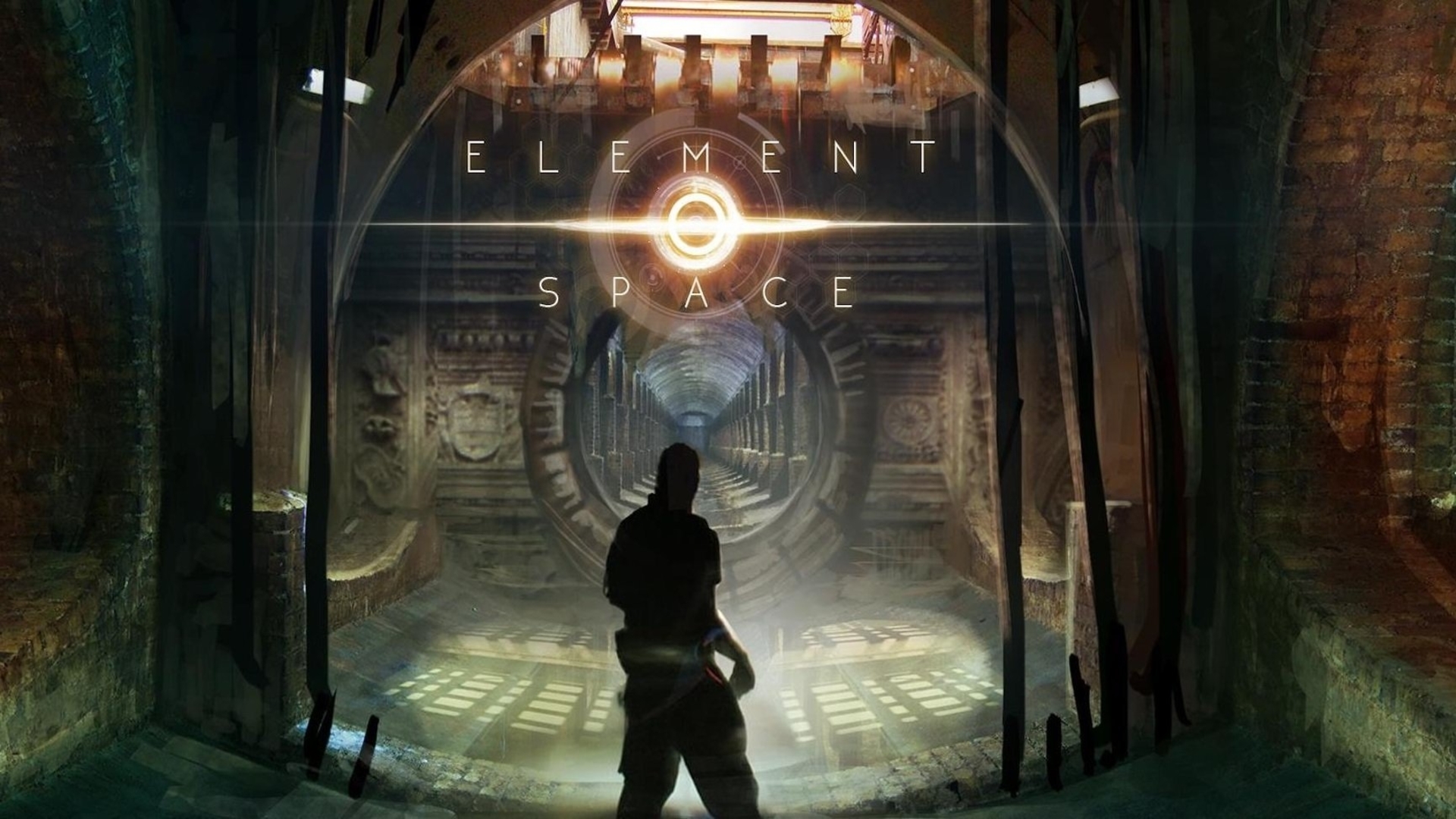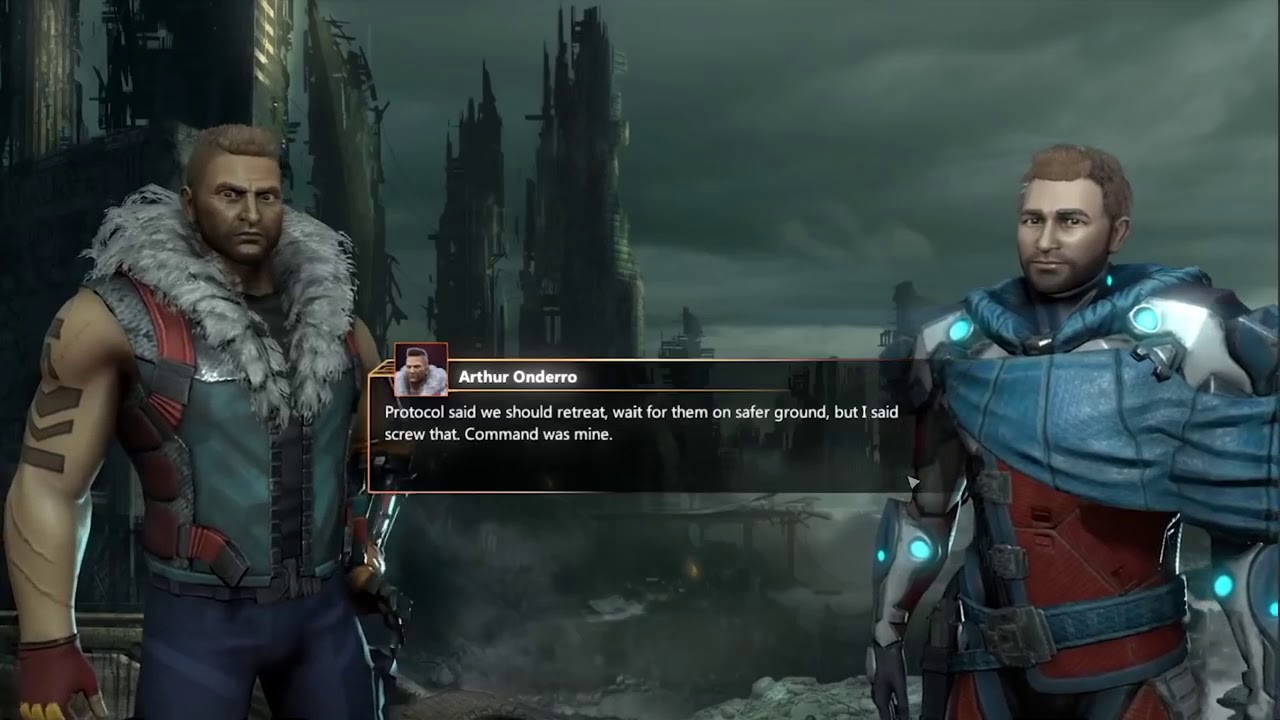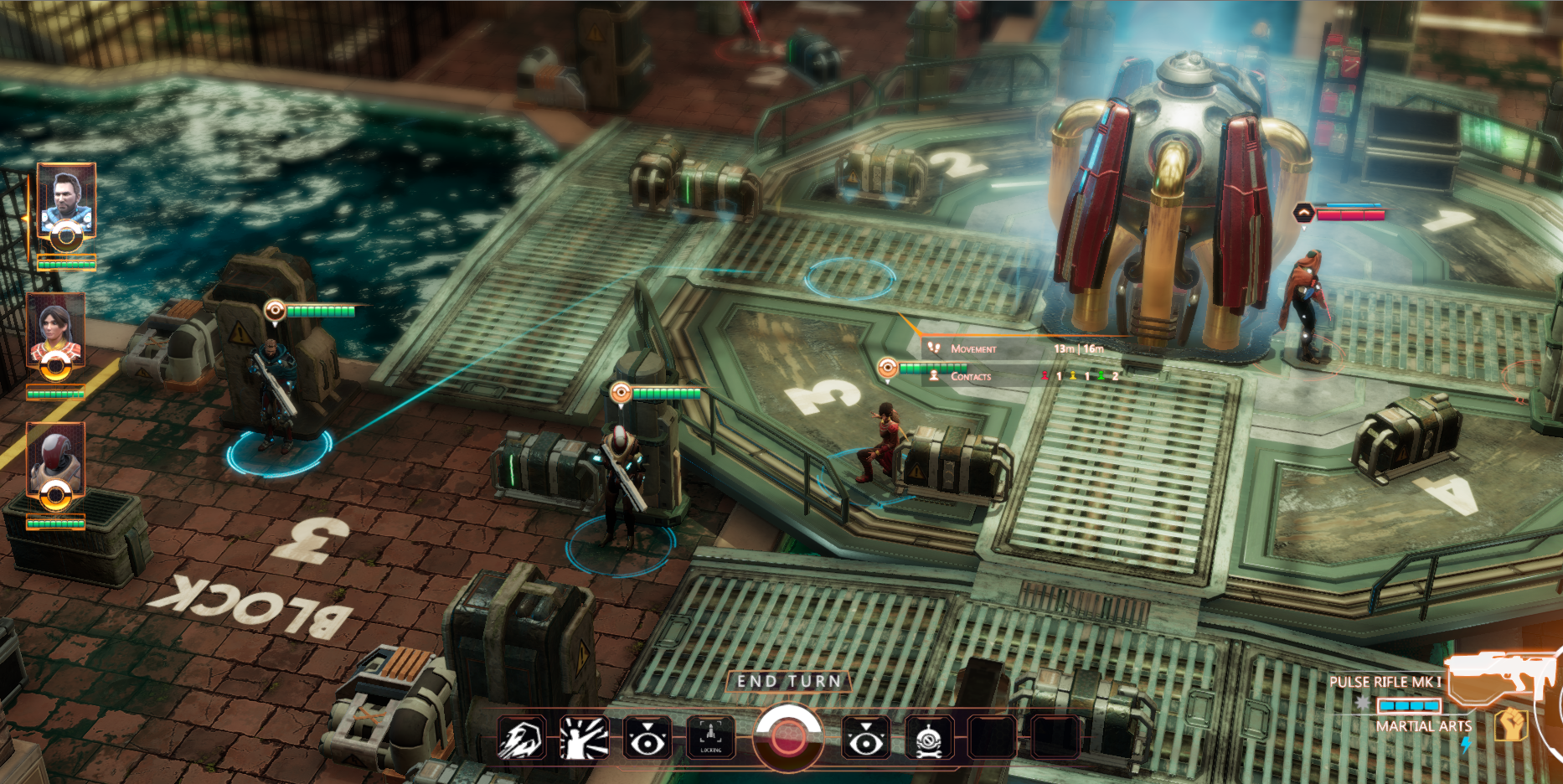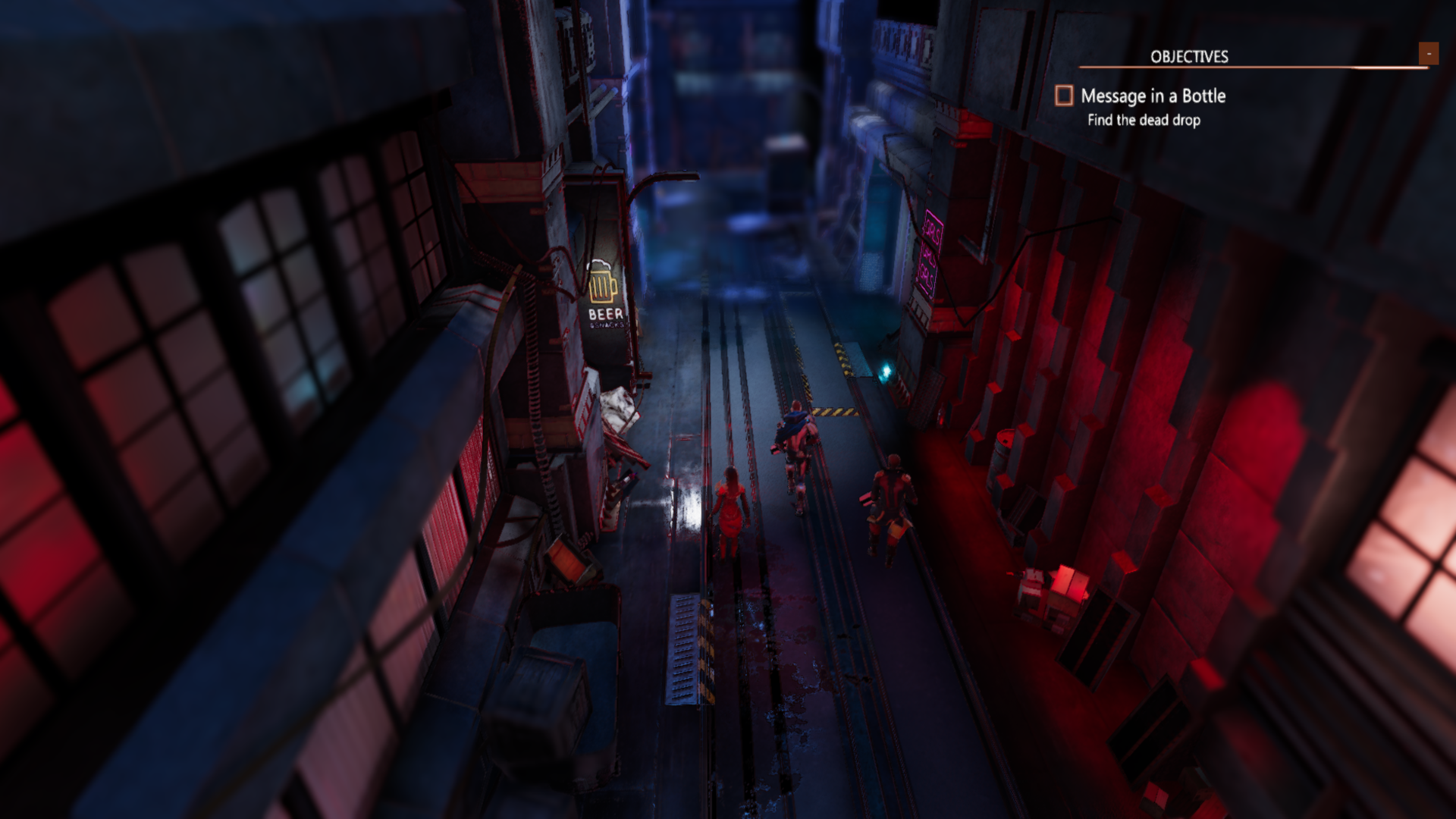Element: Space Asks The Questions Sci-Fi Often Ignores
Spaceships are cool and all, but what happens to our humanity when we leave Earth?

There’s been a cold vacuum left by the fallout and controversy surrounding Bioware’s Mass Effect Andromeda, a void of sci-fi role-playing games that no large-scale developer seems too eager to fill. Luckily, smaller developers with big dreams are stepping in, such as Inca Games and their upcoming tactical RPG Element: Space.
Element: Space shares a few thematic elements (no pun intended) with Bioware’s juggernaut sci-fi series but is definitely its own beast. Inca Games, through their internal development team Sixth Vowel, is taking the leap into making something more expansive than a lot of projects we’ve seen. Mixing a rounded-out morality/choice mechanic with hardcore tactical strategy, Element: Space has narrative and conversational mechanics reminiscent of its triple-A ancestors. The heart of the gameplay, meanwhile, is designed to appeal to those who enjoy challenging turn-based combat.

Element: Space is currently on Steam’s Early Access. After playing some of the work-in-progress, we reached out to Inca Games’ CEO, Javier Fernando Entelman, to get more details. Inca Games hails from Buenos Aires in sunny Argentina, but the team is made up of talent from all over Latin America. With a core team of 15 to 20 members, Element: Space can currently lay claim to being one of, if not the biggest and most ambitious games to be developed in that part of the world.
Based on the Steam Early Access version, things look to be going quite well indeed. Javier was originally in the movie business and actually conceived Element: Space as such. He wrote the script while working on another film project, but soon had a change of direction. “When I wrote the script,” he told me, “I immediately realized two things: First, it was too long for a movie (and impossible to film in Argentina at least) and two, I wanted the protagonist to experience the universe and the story, so that immediately translated to me as a video game.”
At the time, Javier explained, he was going through a philosophical crisis about humanity and our place in the universe. “This was when Neil De Grasse Tyson´s Cosmos remake came out, which blew my mind,” he said. “I got obsessed with the concept that we as a species have a monumental challenge to stay alive, and [our extinction could] happen in our generation or the next. Also, I would love to think that humanity could survive more than a second on the cosmic calendar!”
Anxiety over issues like climate change, the constant pollution of space and the difficulty of potentially leaving planet Earth stuck with Javier. He wanted to tell a story that was the antithesis of most dark, gritty approaches to science fiction. His narrative would focus on the importance of working together as a species to avoid extinction, hopefully on Earth and if not there, in space. The first in what Inca Games hopes will be a trilogy, the game takes place at a pivotal point in humanity’s existence.

The game contains a mix of combat, dialogue, and exploration. Past the initial opening missions, players can choose their path between story focused and resource-gathering missions. Along the way, they can talk to and recruit eight different companions, each with their own specialities and personalities. This relationship building, based on Mass Effect-like dialogue options, helps dictate the player’s overall standing between the factions.
Element: Space uses what they call the ‘Ideology System’ to keep track of the choices made through the game. Unlike a lot of very black-and-white morality systems, the devs insist there are no good or bad routes, only philosophical and political choices that teeter between a belief in Humanism or Independence. This system also determines your character’s relations with companions. “That is what Element Space is all about,” Javier explains. “Learning to survive against time, against space, and against our own petty impulses to gain profit instead of sustainability.”
Taking the concept that humanity is its own worst enemy, there are no aliens in Element: Space, only different cultures and factions of humans. By the year 2199, these human have settled into three solar systems thanks to an incredible leap in space travel called Quantum Tunneling. With this technology, humans are able to travel to any point in the universe almost instantaneously, but that initial rapid expansion was ground to a halt by a decades-long war between seven very different factions. The game begins after generations of conflict, where the right people doing the right things can just maybe avert extinction.
Players start Element: Space with a base character, before developing their protagonist by gaining perk points used to tailor their specific skill set and combat specializations. This also applies to the companions you gather along your journey. It’s designed so that no two characters have quite the same skills in order to ensure plenty of variation in the tactical combat and allow players to tweak their team to their play style.

Heavily inspired by tabletop tactical squad-based RPGs, combat is a challenging mix of skill use, melee combat, and ranged assaults, where strategic thinking is critical to survival. Inca is intent on making sure players get a hardcore tactical experience, to ensure a victory really does feel like an accomplishment.
The battles have a visceral feel and pace, despite being turn-based. It’s easy to be impressed by the AI opponents who don’t just come head on, but usually from multiple sides of the battlefield. They use cover, attack from angles, and will try to flank you. Cover in Element: Space is also usually entirely destructible, so there’s a palpable sense of urgency that your team has to constantly be moving.
More impressive (especially for Shadowrun fans) is the wonderful diversity of tactical options. While traditional sci-fi guns and explosives are always an option, characters can viably specialize in melee weapons like swords and some incredibly cool magical techniques that can literally make your character appear in multiple places at once while attacking. Alongside your standard sci-fi armoury, there are hacker-esque skill paths and drones to cover from above. In action, the sheer variety of choice leaves a distinctive mark on the game’s combat.
The Sixth Vowel magic system allows humans to perform amazing feats, not just including Quantum Tunneling travel, but also to be applied for unique abilities. Through special meditation techniques, characters are able to modify materials, change the chemistry of their own bodies, conjure almost immediate physical and chemical effects on their surroundings, and other perform other feats yet to be uncovered.

Despite being made by a relatively small team, the presentation is excellent. Played from a fully 3D isometric viewpoint, with a completely controllable camera, Element: Space is sharply detailed and already incredibly polished. Character animations, explosions, and other special effects give the combat a nice punch and make all the violence a treat for the eyes.
The actual mission structure and travel is inspired more by X-COM than Mass Effect. Your ship travels immediately to missions locales and drops you right into the mission. These levels vary between open and heavily enclosed spaces, but are all pre-designed. There’s no procedural generation here, no random exploration to distract the player. “I always felt exploration tells a different type of story,” Javier remarked. “And to be honest, I personally loathe gigantic exploratory worlds. It just tires me out.”
Inca focused on making sure no two story missions look or feel the same and that all the factions look, feel, and fight very differently. They have different units and powers, and even the architecture is unique between them.
With a projected release this February, Element: Space is almost finished. The Early Access beta has garnered positive reviews and feedback on Steam and Inca is clearly excited and passionate about their game. They expect between 15 to 20 hours to finish Element: Space the first time around. Since you can’t see every story mission during any one playthrough, getting every achievement, companion, weapon, and ending will take several different replays.
We’ve been seeing some interesting game development coming from this part of the world in recent years, but Element: Space is definitely shaping up to be the most ambitious Latin American release yet. It should be especially appealing for tabletop gamers who love a challenge, but Inca hopes to appeal to all lovers of sci-fi with an underlying plot that allows the player to control both their own fate and that of humanity at large.

